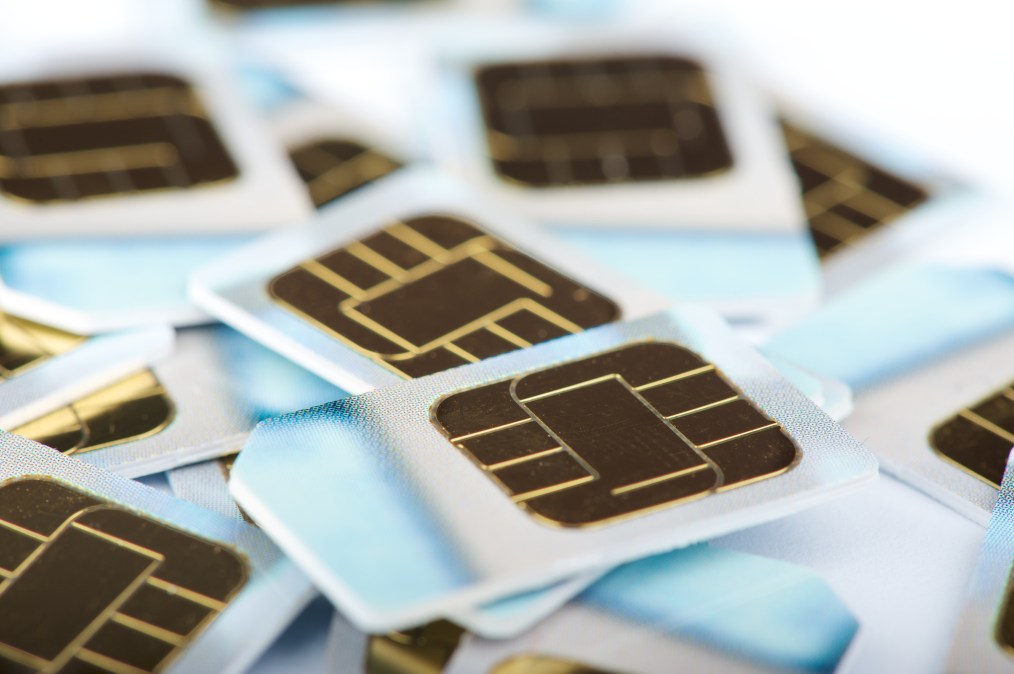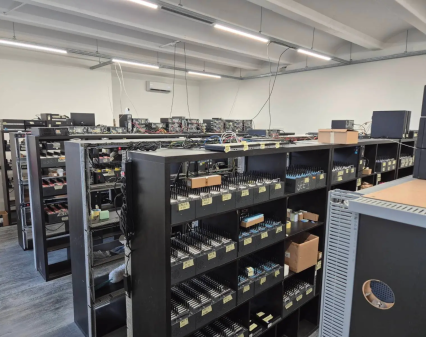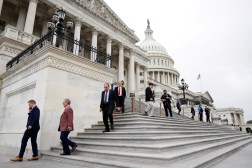Secret Service says it dismantled extensive telecom threat in NYC area

The Secret Service said Tuesday that it disrupted a network of electronic devices in the New York City area that posed imminent telecommunications-based threats to U.S. government officials and potentially the United Nations General Assembly meeting currently underway.
The range of threats included enabling encrypted communications between threat groups and criminals, or disabling cell towers and conducting denial-of-service attacks to shut down cell communications in the region. Matt McCool, special agent in charge of the Secret Service’s New York field office, said the agency’s early analysis of the network indicated “cellular communications between foreign actors and individuals that are known to federal law enforcement.”
In all, the agency said it discovered more than 300 servers and 100,000 SIM cards spread across multiple sites within 35 miles of the U.N. meeting. The Secret Service announcement came the same day President Donald Trump was scheduled to deliver a speech to the General Assembly.
“The potential for disruption to our country’s telecommunications posed by this network of devices cannot be overstated,” U.S. Secret Service Director Sean Curran said in a news release.
McCool said in a video statement that the investigation was ongoing, but the threat the network posed had been neutralized.
“These devices allowed anonymous, encrypted communications between potential threat actors and criminal enterprises, enabling criminal organizations to operate undetected,” he said. “This network had the potential to disable cell phone towers and essentially shut down the cellular network in New York City.
“We will continue working toward identifying those responsible and their intent, including whether their plan was to disrupt the U.N. General Assembly and communications of government and emergency personnel during the official visit of world leaders in and around New York City,” McCool continued.
News outlets briefed on the operation reported that the network anonymously conveyed assassination threats against senior U.S. officials, that the agency had never seen such an extensive operation, that the investigation uncovered empty electronic safehouses rented around the area and that hackers, terrorists, spies and human traffickers could’ve made use of the network. The investigation reportedly began in response to swatting and bomb threats against U.S. officials.
Other participants in the investigation were the Department of Homeland Security’s Homeland Security Investigations, the Department of Justice, the Office of the Director of National Intelligence and the New York Police Department.
Some cybersecurity professionals reacted skeptically to elements of the Secret Service announcement.
“Super weird framing by the Secret Service,” Marcus Hutchins, the researcher known for stopping the 2017 WannaCry ransomware attack, wrote on BlueSky. “They found a SIM card farm, which is typically used by criminals to anonymously send calls and texts. They issued a press release claiming ‘it could have shut down the entire NY cell network during the UN general assembly’ which is some serious FUD,” he said, using the acronym for “fear, uncertainty and doubt.”
He added: “it’s possible they found an actual plot to cause widespread destruction, but way more likely they found some generic cybercrime service and have absolutely no clue what it’s for.”
Johns Hopkins cryptography expert Matthew Green wrote on the same social media platform that “I no longer know what we can trust from the Secret Service, especially when a ‘Trump speech’ is involved, and the mechanics of this thing are a little bizarre.”
Updated 9/23/25: to include reaction from cybersecurity professionals.






